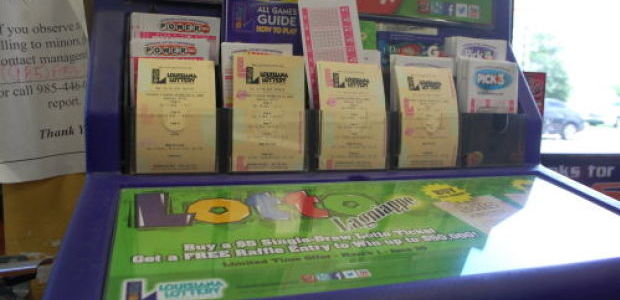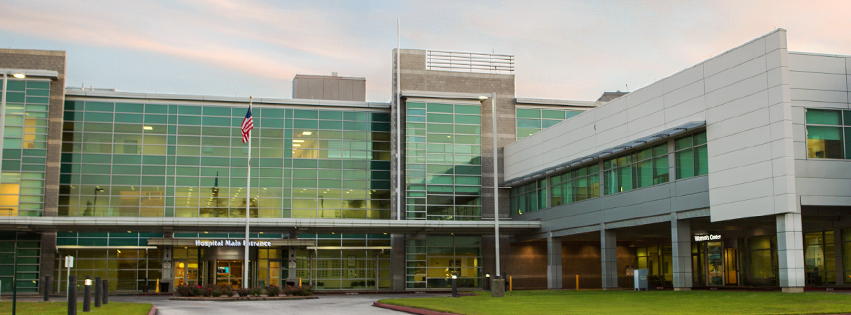
Dixon retires from Ellender basketball
June 25, 2014State’s gas tax money shifts to troopers
June 25, 2014While funding for education in Louisiana continues to suffer, the gaming industry continues to grow from its own profit, with a minimal amount of those funds directed to improve the overall well being of the state.
Many gaming institutions claim to have their hands tied when it comes to how much money is transferred to the state treasury per the constitution, but after those funds are transferred, there remains a large amount that can benefit the state.
In a comprehensive report to the Louisiana Legislature, the Louisiana Gaming Control Board reported gaming revenues from 2012 to 2013 contributed more than $671 million to the state’s economy, with the majority of that money stemming from riverboat gaming. Three riverboat casinos in Kenner, Harvey and Amelia reported adjusted gross revenues exceeding $269 million.
In Terrebonne Parish, video gaming for fiscal year 2011-12 generated net revenue of $46.8 million from 1,000 gaming devices. In Lafourche Parish, during the same time, net revenue totaled $32.8 million from 875 devices in the parish.
State Rep. Joe Harrison, R-Gray, proposed legislation during this past session that would afford more of this money to education, but as in years’ past, his bills against the gaming industry were deferred.
Harrison said a “well-funded education system” is what residents of Louisiana expected when gaming was approved in the early 1990s.
“We have the highest tuition fees in the nation, and we’re killing parents and students through fees,” he said about tuition increases as a result of state cuts to higher education. “This bill would have showed who was going to ‘man up’ on this.”
“It’s the substance that we’re not addressing of what is wrong with our state,” he added.
Harrison believes his bills are continually deferred because of the strength lobbyists have related to gaming, in particular horse racing.
“The horse racing industry is the only group that can use 30 percent of their money to hire lobbyists,” he said. “No other department can do that. It’s self-preservation and it’s difficult to get by.”
From the horse racing industry’s $890 million in revenue, only $200 million is set aside for education, Harrison said. Meanwhile, other funding recipients from betting on horses include Southern University Urban Tourism and Marketing Program, the Superdome Commission, Gambler’s Anonymous and various golf courses.
Harrison said with a lack of leadership and a growing amount of lobbyists, it is difficult to advocate appropriating money to more meaningful causes.
“We have found that over 90 percent of the revenue that keeps the tracks open is strictly from video poker or slot machines at the tracks. Not from the actual revenue that the tracks get for betting or any activity related to the track,” Harrison said. “Between 91 and 92 percent of people involved in the industry such as trainers, jockeys and owners get 100 percent of all the benefits paid for out of gaming proceeds.”
He said the majority of those people do not live in in Louisiana.
“They are a transient group of people who go from track to track and we’re the only track in the United States that provides benefits to them,” Harrison said.
Trooper Evan Harrell, public information officer for Troop C, said the Louisiana State Police, along with the Louisiana Gaming Control Board is committed to the proactive regulation and control of authorized gaming entities in the state to prevent corrupt and dishonest practices.
In an email statement, Harrell said the gaming division’s job is to instill “public confidence while fulfilling duties that ensure accurate revenue collection and reporting from the licensees, protect the state’s assets and ensure the integrity of all gaming devices and systems by enforcing compliance with all state laws, regulations and licensee’s internal controls.”
A 2009 performance audit by the Department of Public Safety’s Gaming Enforcement Division revealed that Louisiana State Police “should improve its management of gaming in certain areas.”
The report revealed LSP did not effectively use data to evaluate performance and manage gaming regulatory functions, and did not find the collected data reliable because of the way they capture the data through an outdated format.
In an effort to get a better idea about where gaming money is distributed, Harrison offered up House Bill 714 in the last legislative session, which would have redirected gaming funds transferred to the state treasury into an account dedicated strictly to education. He named it the “Bet on Louisiana’s Future” Fund. The state rep’s priority was to create a new fund, which would collect gaming revenues and ensure those funds are appropriated to support education.
While Harrison’s bill would remove certain beneficiaries that he believes should not benefit from gaming revenue, it did not dictate an exact amount of how much money should be dedicated to the Bet fund.
Kimberly Chopin, communications manager for the Louisiana Lottery Corporation, said the Lottery has not participated in any discussions to allocate more of its revenue to areas such as education’s Minimum Foundation Program, but the corporation remains bound to what the state constitution mandates.
“It’s simply our job to transfer funds per the constitution to the treasury, and then, per the constitution, the treasury transfers those proceeds to the Minimum Foundation Program,” Chopin said.
The Louisiana Lottery transfers 35 percent of its revenue to the state treasury. At the end of its fiscal year in June 2013, the Lottery reported $3.7 million in surplus funds transferred to the state treasury for the Minimum Foundation Program.
The lottery’s first $500,000 collected is earmarked to help treat gambling problems through the Louisiana Department of Health and Hospitals-Office of Behavioral Health.
Chopin said the 35 percent transfer rate is among one of the highest in the nation. The state constitution reads that Lottery dollars benefit the Minimum Foundation Program, which funds secondary education in public schools throughout Louisiana.
The Lotto’s 2013 total sales were $447.4 million – $67.4 million above budget and $17.8 million higher than the fiscal year results of 2012.
The lottery reported investments of $74.5 million to “fund current prizes and operations, supplement the long-term funding of enhanced instant game prizes, provide adequate reserves for funding potential prize liabilities and maintain financial protection from future unexpected costs.”
Chopin said the lottery defines its operating efficiencies by how much revenue the corporation takes in, and how much is transferred back to the state.
“It is the second highest transfer percentage among all lotteries. That is a very high percentage, especially considering the size of our lottery. When you look at lotteries that are similar in terms of population, we’re at the very top,” she said.
State law requires the Minimum Foundation Program, which is funded in part by the Louisiana Lottery, to publish a report with each public school recognized by the Louisiana Department of Education.
The MFP Accountability report for fiscal year 2011-12 indicates the expenditures per pupil for classroom instruction. The calculations are based on a number of variables, including a school district’s ability to financially support education. Montegut Middle School received one of the lowest amounts of funding in Terrebonne Parish at $4,369 and Legion Park Middle School received one of the highest amounts of funding at $7,079.
W. S. Lafargue Elementary School was one of the schools in Lafourche Parish to receive a larger amount of funding at $7,159, while Lockport Middle School received less at $4,439.
Although those amounts do help education, Harrison believes there is more that can be done.
“I’m not stopping,” Harrison said of his effort to direct more money to education. “Eventually, someone will get it through their head that we do have enough money in the state, we just don’t have the intestinal fortitude to do what’s the right thing and take it away from some of these people that do not deserve it and put it to where we have to put it, and that’s the need of our educational and health care groups.”
Gaming in Louisiana translates into big money, but only an amount set by the state Legislature is making its way to education – the purpose pitched to voters when authorizing gambling.












